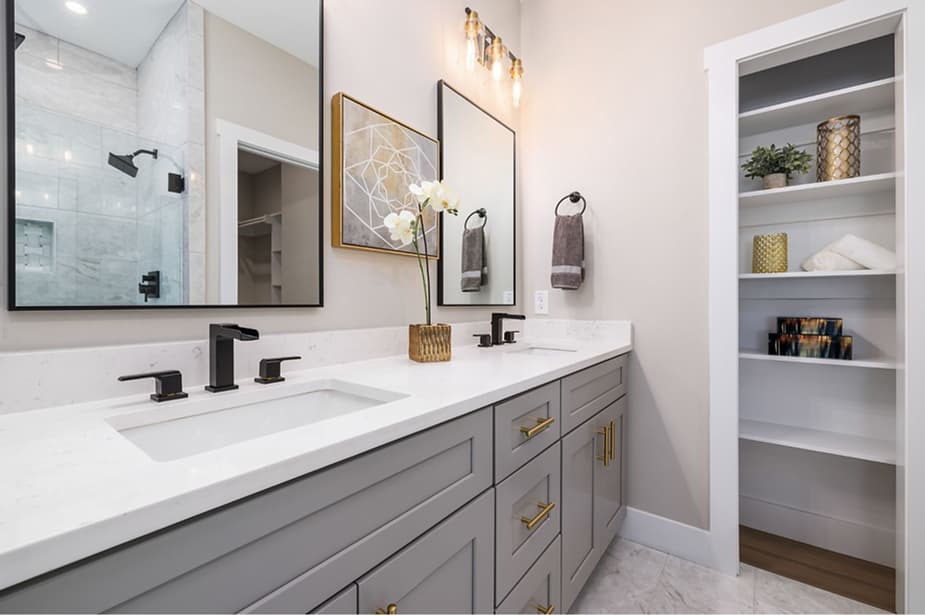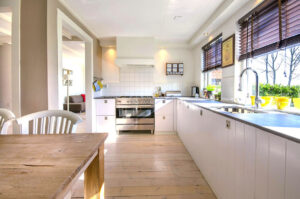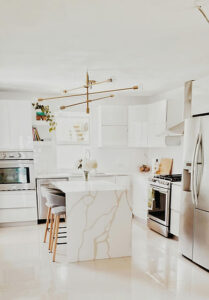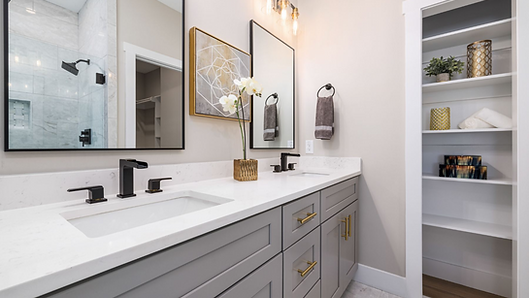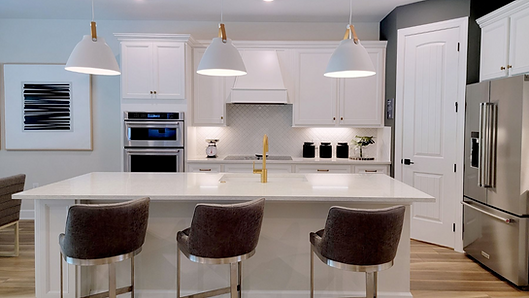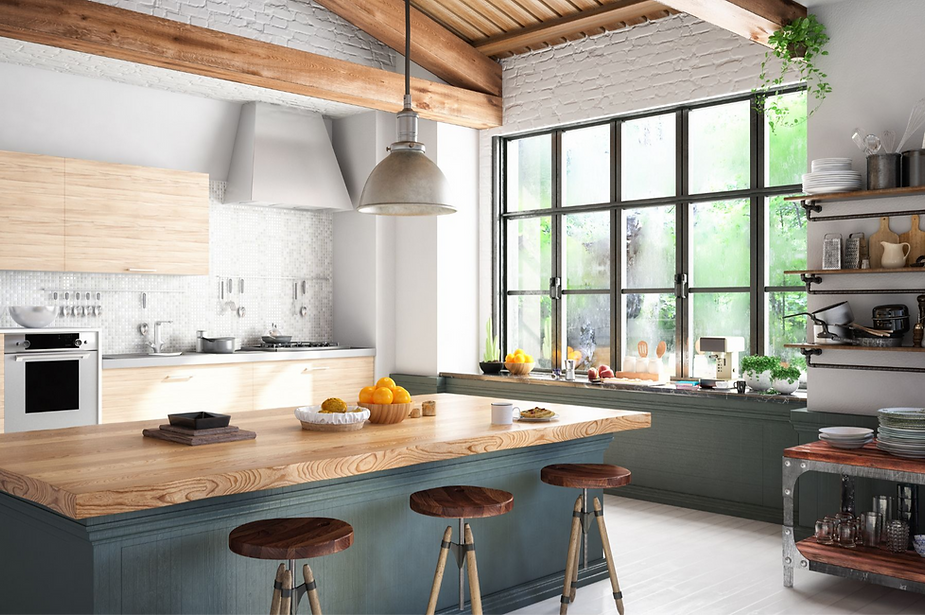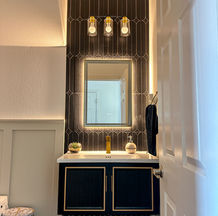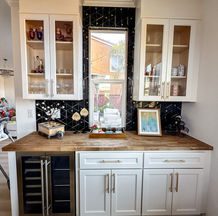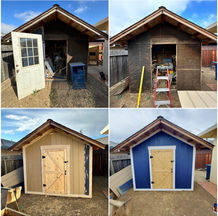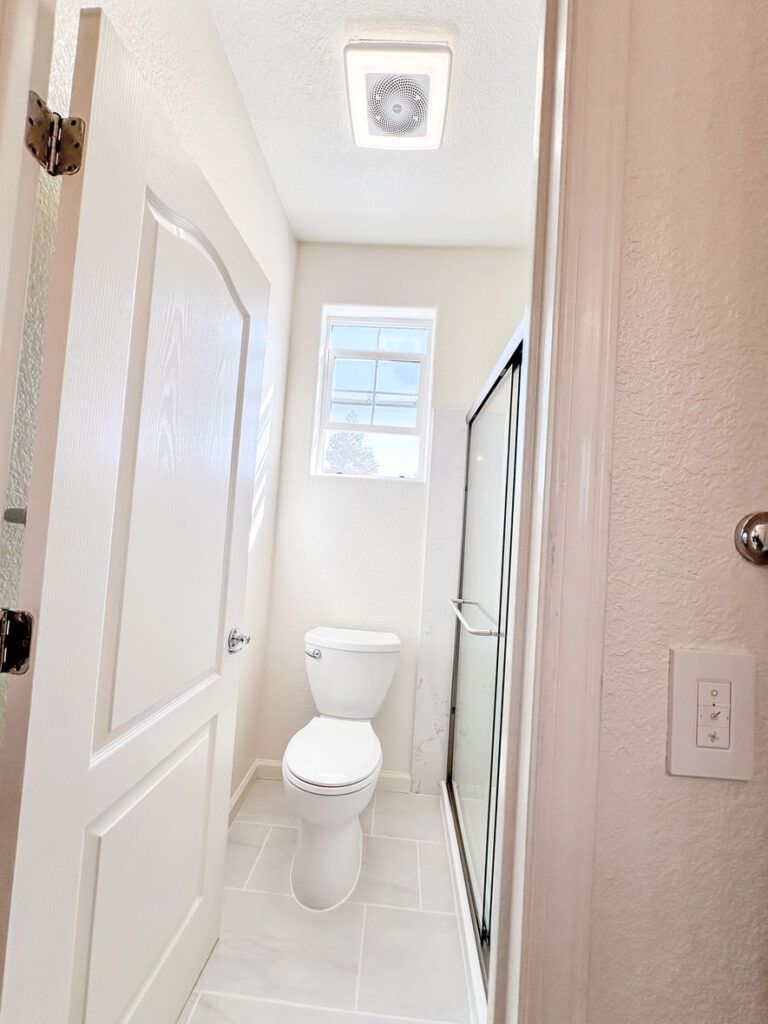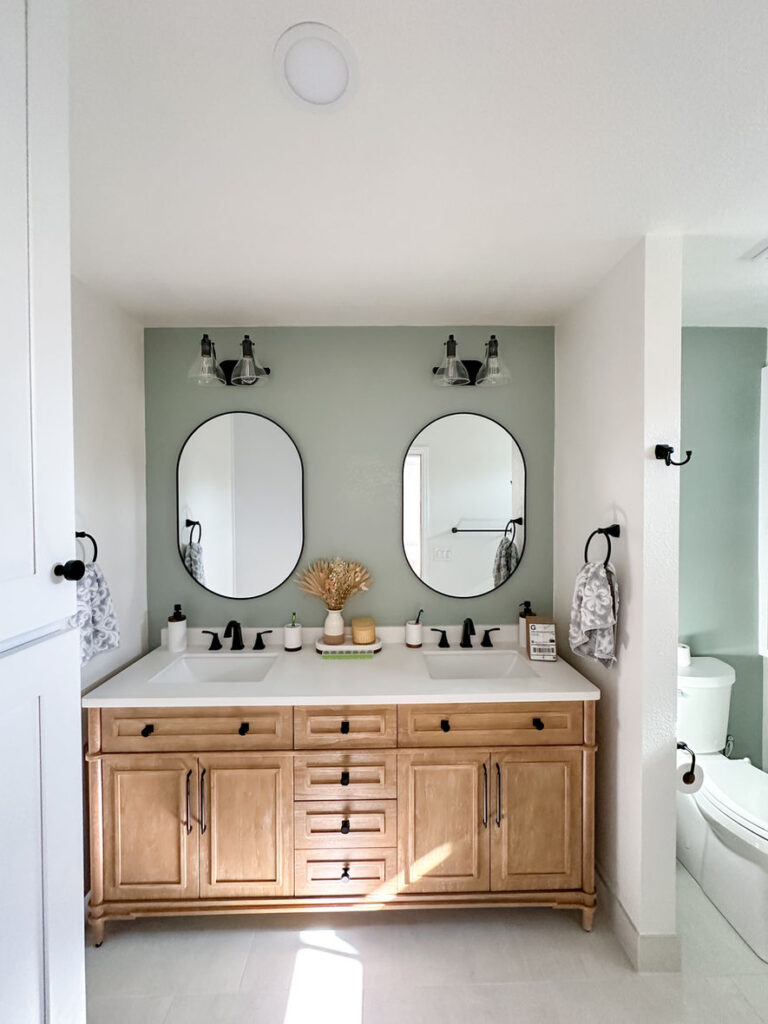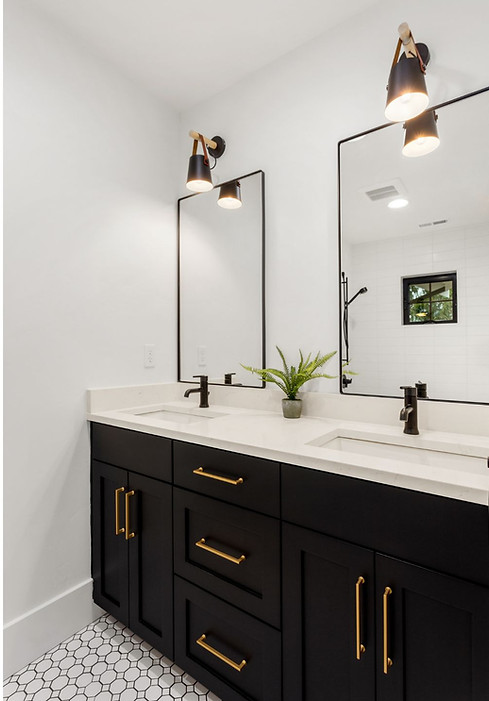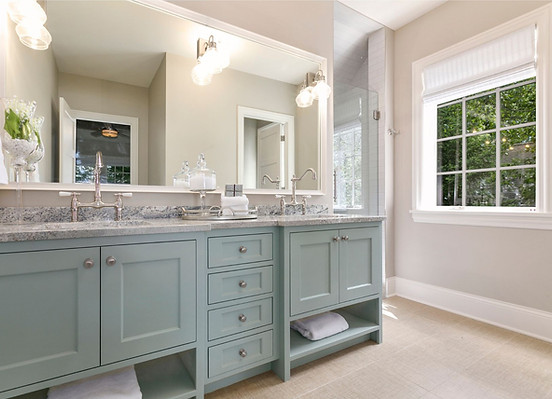When it comes to bathroom remodels, choosing the right countertop material is a crucial decision. Your bathroom countertop needs to stand up to moisture, spills, and everyday wear while also complementing the overall design of the space. With so many options on the market, it can be tough to decide which material is the best fit for your needs and budget. In this post, we’ll walk through the top bathroom countertop materials, exploring the pros and cons of each, so you can make an informed decision for your bathroom remodel.
1. Quartz: The Durable and Low-Maintenance Option Quartz countertops are a popular choice for bathrooms due to their durability, wide range of styles, and low-maintenance requirements.
Pros:
- Durability: Quartz is engineered from natural stone, making it incredibly durable and resistant to scratches, stains, and impact. It’s also non-porous, meaning it doesn’t require sealing like granite or marble.
- Non-Porous: Since quartz is engineered and non-porous, it’s resistant to bacteria and mold, which is essential in a bathroom setting where moisture levels are higher.
- Low Maintenance: Unlike natural stone, quartz is resistant to water and bacteria buildup, which makes it easy to clean with just soap and water.
- Variety of Styles: Quartz comes in a wide range of colors and patterns, including options that mimic the look of marble or granite, so it’s easy to find one that suits your bathroom’s style.
Cons:
- Price: Quartz countertops can be on the more expensive side, particularly if you opt for high-end brands or unique designs.
- Heat Sensitivity: While quartz is durable, it can be sensitive to excessive heat. Always use a trivet or hot pad when placing hot items on the surface.
Best For: Homeowners looking for a durable, low-maintenance option that doesn’t sacrifice style for function.
2. Granite: The Timeless Classic Granite is a natural stone that has been a popular choice for bathroom countertops for many years due to its natural beauty and durability.
Pros:
- Durability: Granite is one of the hardest and most durable materials, resistant to scratches, stains, and heat. This makes it an excellent option for those who want a countertop that will last.
- Unique Appearance: Since granite is a natural stone, each slab is unique. It comes in a wide range of colors and patterns, from bold veining to more subtle designs.
- Increased Home Value: Because granite is a high-end material, it can add value to your home, making it a good investment.
Cons:
- Maintenance: Granite is porous, so it needs to be sealed regularly to prevent stains and bacteria buildup.
- Cost: It’s generally more expensive than other options, especially for premium grades and intricate designs.
Best for: Homeowners who are looking for a luxurious, natural material and don’t mind the additional maintenance.
3. Marble: The Elegant and Luxurious Choice Marble is known for its timeless elegance and sophisticated look. Its distinctive veining and natural beauty make it a sought-after material for upscale bathroom designs.
Pros:
- Elegance and Beauty: Marble is often associated with luxury and opulence. Its unique patterns and rich, polished finish can elevate any bathroom.
- Heat Resistance: Marble is heat-resistant, so it can withstand hot items without getting damaged.
Cons:
- Maintenance: Like granite, marble is porous and requires regular sealing to prevent stains. It’s also more prone to scratching and etching, especially from acidic substances like toothpaste and cleaning products.
- Cost: Marble is generally the most expensive option for bathroom countertops, both in terms of materials and installation.
Best for: Homeowners who prioritize luxury and elegance and are willing to maintain the countertop to preserve its beauty.
4. Solid Surface (e.g., Corian): The Versatile and Seamless Option Solid surface countertops are made from a blend of acrylic, resins, and natural minerals. They provide a smooth, seamless look with many design options.
Pros:
- Seamless Design: Solid surface countertops can be molded into any shape, and the seams are nearly invisible, giving a clean and uniform look.
- Low Maintenance: These countertops are non-porous, so they are resistant to stains and bacteria. They’re also relatively easy to clean and repair.
- Variety of Colors: Solid surface countertops come in a wide range of colors and patterns, offering great flexibility for different bathroom designs.
Cons:
- Scratch Prone: Solid surfaces are more prone to scratching compared to natural stone, though light scratches can often be buffed out.
- Heat Sensitivity: Like quartz, solid surface countertops can be damaged by high heat, so it’s important to use hot pads or trivets.
Best for: Homeowners who want a customizable, low-maintenance option with a seamless, modern look.
5. Concrete: The Modern and Customizable Choice Concrete countertops are gaining popularity for their modern and industrial aesthetic, offering a unique, customizable option for bathroom designs.
Pros:
- Customizable: Concrete countertops can be poured into any shape and tinted any color, allowing for a fully personalized design.
- Durability: Concrete is strong and durable, resistant to heat and impact. It can also be polished to a sleek finish or left with a more rustic look.
Cons:
- Maintenance: Concrete is porous, so it requires regular sealing to prevent stains and water damage.
- Cracking: Over time, concrete can develop hairline cracks, especially if it’s improperly installed or exposed to too much weight.
Best for: Homeowners who love the modern industrial look and are looking for a unique, customizable option for their bathroom countertop.
6. Wood: The Warm and Natural Option Wood countertops offer a natural, rustic feel and can be a beautiful addition to a bathroom that blends with earthy tones or farmhouse styles.
Pros:
- Warmth and Natural Beauty: Wood has a warm, inviting appearance that works well in rustic, farmhouse, or coastal-themed bathrooms.
- Customizable: Wood countertops can be easily customized in terms of shape, color, and finish.
Cons:
- Water Damage: Wood is porous and susceptible to water damage if not properly sealed. It also requires maintenance to prevent warping or staining.
- High Maintenance: Wooden countertops require regular sealing and care to maintain their appearance and prevent damage from moisture.
Best for: Homeowners who want a natural, warm feel and are willing to maintain the wood to preserve its beauty.
Conclusion: When it comes to choosing the right countertop for your bathroom, the best material depends on your needs, style preferences, and budget. Quartz and granite offer durability and beauty, while marble brings luxury to your space. Solid surface countertops are ideal for a seamless, modern look, and concrete or wood can bring a unique, customizable touch to your design.
If you’re still unsure about which material is best for your bathroom remodel, I’m happy to help guide you in the right direction. Whether you’re looking for durability, low-maintenance options, or a touch of elegance, there’s a perfect countertop material out there for you!

